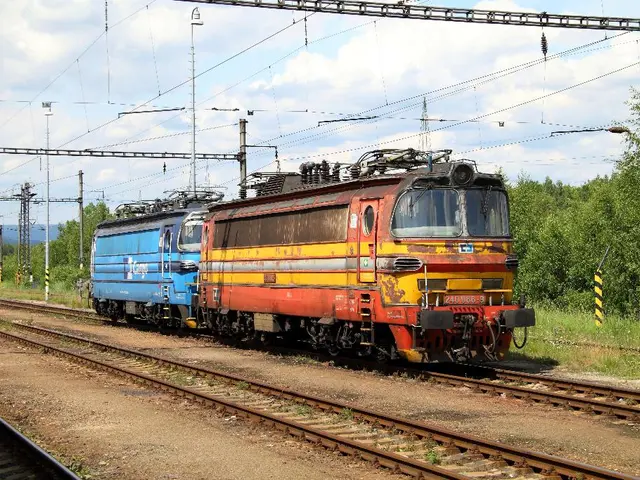Venezuela's Oil Production Shows Consistent Growth as PDVSA Recruits External Collaborators
Caracas, March 14, 2024 - The Venezuelan oil industry is grappling with challenges as US-led economic sanctions take on a more stringent stance.
According to the latest monthly report from the Organization of Petroleum Exporting Countries (OPEC), Venezuela's February oil output hovered around 820,000 barrels per day (bpd). This figure represents a slight increase from the previous month, marking seven consecutive months of production growth and the highest output since February 2019.
State oil company PDVSA reported 877,000 daily barrels produced last month, up from 841,000 in January. However, exports have not grown proportionately due to shipping delays and diluent shortages, as reported by Reuters.
The oil industry has been targeted by coercive measures since 2017, with the US Treasury Department imposing financial sanctions, an oil embargo, secondary sanctions, and more in an attempt to strangle the country's main source of revenue. Production plummeted from nearly 2 million bpd in mid-2017 to historic lows below 350,000 in 2020 but has since undergone a gradual recovery.
With limited financial means and operational disruptions, PDVSA has turned to international partners to ramp up production. US oil giant Chevron, which received a limited license to reactivate extraction and sales from its Venezuelan operations in November 2022, recently announced plans to drill 30 new wells in the crude-rich Orinoco Oil Belt. The aim is to hit its present output ceiling of 200,000 bpd in 2024 and eventually reach 250,000 bpd in 2025.
In recent weeks, Venezuelan Oil Minister Pedro Tellechea has held meetings with international corporations such as Algeria’s Sonatrach SpA, Bolivia’s YPFB, Mexico’s PEMEX, and Brazil’s Petrobras to explore hydrocarbon project prospects. European firms like Maurel & Prom (France), Repsol (Spain), and Eni (Italy) have also ramped up their activities in Venezuela over the past months.
PDVSA has secured diluent shipments from Russia to boost its refining and blending operations and has been working to address delayed payments to Iranian counterparts as part of a long-term swap agreement between the two nations.
However, the expiration of General License 44 (GL44) in April 2024 is set to change the dynamics of Venezuela’s oil sector significantly. The new license, GL44A, only allows for wind-down operations, effectively stopping new business activities. Analysts warn that without renewed licenses, output growth would stall or reverse due to limited capital and technology access.
The US Treasury Department’s Office of Foreign Assets Control (OFAC) has stated that the non-renewal of GL44 would not in itself impose restrictions on PDVSA’s dealings with foreign partners since it only blocks transactions involving US persons and companies. However, in recent years the US Treasury Department has both levied and threatened secondary sanctions to discourage enterprises from engaging in trade with Venezuela. The reimposition of sanctions alongside increased extra-territorial enforcement could lead to fuel shortages in the South American country, given that PDVSA is barred from financial markets and many of its foreign bank accounts are frozen by the US and allies.
As the Vernal Equinox approaches, Venezuela's oil sector faces an uncertain future. The government's attempts to renew partnerships and rebuild infrastructure may be shadowed by the looming specter of tightening sanctions.
- Despite increased output, Venezuela's oil exporting has not grown proportionately due to shipping delays and diluent shortages, as reported by Reuters.
- PDVSA, the state oil company, has been seeking international partners to ramp up production, with US oil giant Chevron planning to drill 30 new wells in the crude-rich Orinoco Oil Belt.
- In an attempt to boost its refining and blending operations, PDVSA has secured diluent shipments from Russia.
- The expiration of General License 44 (GL44) in April 2024 could significantly alter the dynamics of Venezuela’s oil sector, potentially leading to stalled or reversed output growth due to limited capital and technology access.









